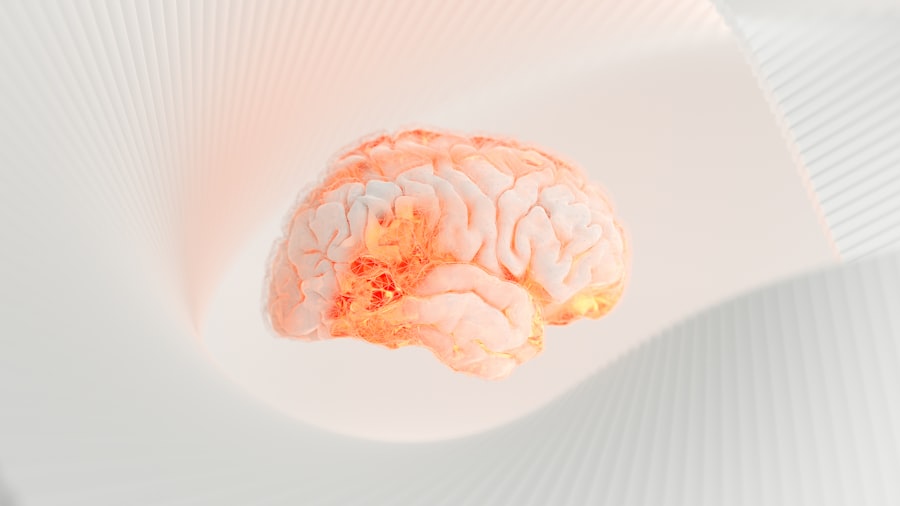Your subconscious mind is a powerful entity that operates beneath the surface of your conscious awareness. It is responsible for storing your beliefs, memories, and experiences, influencing your thoughts and actions in ways you may not even realize. This hidden part of your mind can shape your reality, guiding your decisions and reactions based on the information it has absorbed over time.
By understanding the power of your subconscious, you can begin to harness its potential to create positive changes in your life. When you engage in self-reflection or practice techniques such as meditation, you can tap into this reservoir of knowledge and influence. The subconscious mind is like a vast ocean, filled with the currents of your past experiences and emotions.
By diving deep into this ocean, you can uncover hidden patterns that may be holding you back. Recognizing these patterns allows you to reprogram your subconscious, replacing limiting beliefs with empowering ones. This process can lead to profound transformations in your life, as you begin to align your conscious desires with the deeper motivations of your subconscious.
Key Takeaways
- Your subconscious mind has immense power and can greatly influence your thoughts and behaviors.
- Cognitive biases play a significant role in decision making and can lead to irrational choices.
- Emotions have a strong impact on thought patterns and can influence decision making.
- Memory plays a crucial role in shaping perception and can be influenced by various factors.
- Unconscious motivations can drive behavior and have a significant impact on decision making.
Understanding the Role of Cognitive Biases in Decision Making
Cognitive biases are systematic patterns of deviation from norm or rationality in judgment. They affect how you perceive information and make decisions, often leading you to conclusions that may not be entirely accurate. Understanding these biases is crucial for improving your decision-making skills.
For instance, confirmation bias may lead you to seek out information that supports your existing beliefs while ignoring evidence that contradicts them. This can create a distorted view of reality, making it difficult for you to make informed choices. Another common cognitive bias is the anchoring effect, where the first piece of information you receive serves as a reference point for all subsequent judgments.
This can skew your perception and lead to poor decision-making. By becoming aware of these biases, you can take steps to mitigate their influence. You might consider seeking diverse perspectives or challenging your initial assumptions to ensure a more balanced approach to decision-making.
By doing so, you empower yourself to make choices that are more aligned with reality rather than those shaped by cognitive distortions.
The Influence of Emotions on Thought Patterns

Emotions play a significant role in shaping your thought patterns and overall mental processes. When you experience strong emotions, they can cloud your judgment and influence the way you interpret situations. For example, when you’re feeling anxious or stressed, you may find it challenging to think clearly or make rational decisions.
Your emotional state can create a filter through which you view the world, often leading to skewed perceptions and reactions. Moreover, emotions can also serve as powerful motivators for action. When you’re passionate about something, you’re more likely to pursue it with vigor and determination.
Conversely, negative emotions such as fear or sadness can lead to avoidance behaviors that hinder your progress. By recognizing the impact of your emotions on your thoughts and actions, you can develop strategies to manage them effectively. This might involve practicing emotional regulation techniques or engaging in activities that promote positive emotional states, ultimately leading to clearer thinking and better decision-making.
The Science of Memory and its Impact on Perception
| Topic | Data/Metrics |
|---|---|
| Memory Capacity | The average human brain can store up to 2.5 petabytes of information. |
| Short-Term Memory | It can hold about 7 items for about 20-30 seconds. |
| Long-Term Memory | Information can be stored indefinitely with the potential for unlimited capacity. |
| Memory Consolidation | It is the process of stabilizing a memory trace after the initial acquisition. |
| Memory Retrieval | Recalling stored information can be influenced by various factors such as emotions and context. |
| Impact on Perception | Memory can influence how we perceive and interpret the world around us, shaping our beliefs and behaviors. |
Memory is a complex cognitive process that significantly influences how you perceive the world around you. Your memories shape your understanding of past experiences and inform your expectations for the future. However, memory is not a perfect recording; it is malleable and subject to distortion over time.
This means that the way you remember events can be influenced by various factors, including emotions, context, and even suggestions from others. The reliability of memory can have profound implications for your perception of reality. For instance, if you recall a past event with strong emotional significance, it may color your interpretation of similar situations in the present.
This can lead to biases in how you respond to new experiences based on what you’ve previously encountered. By becoming aware of the fallibility of memory, you can approach situations with a more open mind, recognizing that your perceptions may not always reflect objective reality. This awareness allows you to challenge assumptions and make more informed decisions based on current circumstances rather than relying solely on past experiences.
Unconscious Motivations and Their Effect on Behavior
Unconscious motivations are powerful forces that drive your behavior without your conscious awareness. These motivations often stem from deeply ingrained beliefs and experiences that shape how you respond to various situations. For example, if you’ve internalized a belief that you’re not worthy of success, this unconscious motivation may lead you to sabotage opportunities for growth or advancement.
Recognizing these hidden drivers is essential for personal development and achieving your goals. To uncover your unconscious motivations, consider engaging in self-reflection or seeking feedback from trusted friends or mentors. Journaling can also be a valuable tool for exploring your thoughts and feelings, helping you identify patterns that may be influencing your behavior.
Once you’ve identified these motivations, you can work on reframing them or replacing them with more empowering beliefs. This process requires patience and self-compassion but can lead to significant changes in how you approach challenges and opportunities in your life.
The Connection Between Beliefs and Reality

Your beliefs play a crucial role in shaping your perception of reality. They act as lenses through which you interpret experiences and make sense of the world around you. When you hold strong beliefs about yourself or your capabilities, they can either empower or limit you.
For instance, if you believe that success is unattainable for you, this belief may prevent you from pursuing opportunities that could lead to growth and fulfillment.
You might start by questioning the validity of these beliefs and examining the evidence that supports or contradicts them.
Engaging in positive self-talk and surrounding yourself with supportive individuals can also help reinforce more empowering beliefs. As you shift your mindset, you’ll likely find that new opportunities arise, allowing you to create a reality that aligns more closely with your aspirations.
The Role of Neuroplasticity in Shaping Thought Patterns
Neuroplasticity refers to the brain’s ability to reorganize itself by forming new neural connections throughout life. This remarkable capacity means that your thoughts and behaviors are not fixed; they can be changed through intentional practice and experience. By understanding neuroplasticity, you can take proactive steps to reshape your thought patterns and cultivate healthier mental habits.
For example, if you’re struggling with negative thinking patterns, engaging in activities that promote positive thinking—such as gratitude journaling or mindfulness meditation—can help rewire your brain over time. Consistent practice allows new neural pathways to form, making it easier for you to adopt a more optimistic outlook on life. Embracing neuroplasticity empowers you to take control of your mental processes and create lasting change in how you think and feel.
The Impact of Social Conditioning on Mental Processes
Social conditioning refers to the ways in which societal norms and expectations shape your thoughts, beliefs, and behaviors. From a young age, you’re exposed to various cultural influences that inform how you perceive yourself and others. These influences can be both positive and negative, impacting everything from self-esteem to interpersonal relationships.
Recognizing the effects of social conditioning is essential for developing a more authentic sense of self. You might find that certain beliefs you’ve held are not truly yours but rather reflections of societal expectations or pressures. By questioning these conditioned beliefs and exploring what resonates with your true self, you can begin to break free from limiting narratives.
This process allows for greater self-acceptance and empowers you to live in alignment with your values rather than conforming to external standards.
Strategies for Overcoming Negative Thought Patterns
Overcoming negative thought patterns requires intentional effort and practice. One effective strategy is cognitive restructuring, which involves identifying negative thoughts and challenging their validity. When you catch yourself engaging in negative self-talk or catastrophic thinking, pause and ask yourself whether these thoughts are based on facts or assumptions.
Replacing negative thoughts with more balanced perspectives can help shift your mindset over time. Another useful technique is mindfulness meditation, which encourages present-moment awareness without judgment.
Additionally, surrounding yourself with supportive individuals who uplift and encourage positive thinking can reinforce healthier mental habits. As you implement these strategies consistently, you’ll likely find that negative thought patterns become less pervasive in your daily life.
Harnessing the Power of Positive Affirmations and Visualization
Positive affirmations are powerful tools for reshaping your mindset and reinforcing empowering beliefs about yourself. By regularly repeating affirmations that resonate with your goals and aspirations, you can gradually shift your self-perception and cultivate a more positive outlook on life. For example, affirmations such as “I am capable of achieving my dreams” or “I deserve happiness” can help counteract negative self-talk and instill confidence.
Visualization is another effective technique that complements affirmations by allowing you to mentally rehearse desired outcomes. When you visualize yourself achieving specific goals or embodying desired qualities, you’re essentially training your mind to recognize these possibilities as attainable realities. Combining positive affirmations with visualization creates a powerful synergy that enhances motivation and reinforces belief in yourself.
Cultivating Mindfulness and Awareness for Mental Clarity
Cultivating mindfulness involves developing an awareness of the present moment without judgment or distraction. This practice allows you to observe your thoughts and feelings without becoming overwhelmed by them. By incorporating mindfulness into your daily routine—whether through meditation, deep breathing exercises, or mindful walking—you can enhance mental clarity and reduce stress.
As you become more mindful, you’ll likely notice an increase in self-awareness regarding your thought patterns and emotional responses. This heightened awareness enables you to respond thoughtfully rather than react impulsively to challenging situations. Over time, cultivating mindfulness fosters a greater sense of peace and clarity in your life, empowering you to navigate challenges with resilience and grace.
In conclusion, understanding the intricacies of your mind—ranging from subconscious influences to cognitive biases—can significantly enhance your decision-making abilities and overall well-being. By actively engaging with these concepts through practices such as mindfulness, positive affirmations, and cognitive restructuring, you’re taking proactive steps toward creating a more fulfilling life aligned with your true self.
In exploring the intricacies of the human mind, it’s essential to consider various perspectives and insights. A related article that delves into the complexities of mental processes can be found on Unplugged Psychology’s website. This article provides a comprehensive overview of how our thoughts and emotions are interconnected, offering valuable insights into the truth about your mind. For a deeper understanding, you can read more about these fascinating concepts by visiting the article on Unplugged Psychology.
WATCH THIS! The Shocking Truth About Perception Loops
FAQs
What is the truth about the mind?
The truth about the mind is that it is a complex and powerful organ that controls our thoughts, emotions, and behaviors. It is responsible for processing information, making decisions, and regulating bodily functions.
How does the mind work?
The mind works through a network of neurons and neurotransmitters that communicate with each other to process information and send signals throughout the body. It also relies on various cognitive processes such as perception, attention, memory, and problem-solving.
Can the mind be trained or improved?
Yes, the mind can be trained and improved through various techniques such as mindfulness, meditation, cognitive-behavioral therapy, and brain training exercises. These practices can help enhance cognitive function, emotional regulation, and overall mental well-being.
What factors can affect the mind?
Several factors can affect the mind, including genetics, environment, lifestyle, stress, trauma, and mental health conditions. Additionally, diet, exercise, sleep, and social interactions can also impact the functioning of the mind.
How can one maintain a healthy mind?
To maintain a healthy mind, it is important to engage in activities that promote mental well-being, such as regular exercise, healthy eating, adequate sleep, stress management, social connections, and seeking professional help when needed. Additionally, practicing mindfulness and relaxation techniques can also contribute to a healthy mind.




